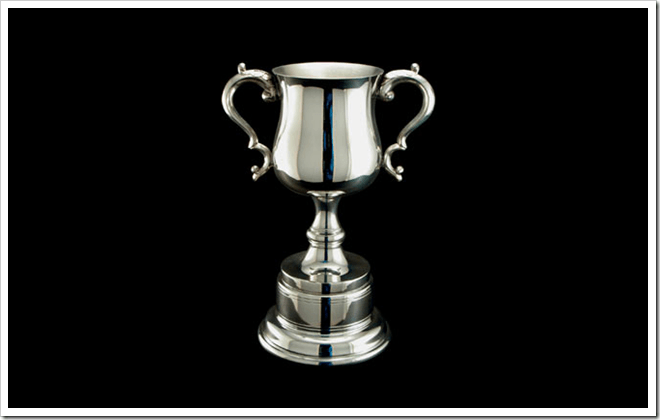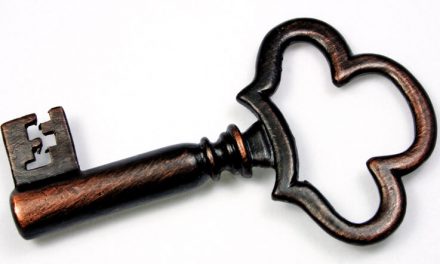Take “me” as, of course, a hypothetical example.
I think I’m a pretty decent business analyst. I have a bit of experience. I have a pretty good grasp of the fundamentals. I have a pretty good understanding of my business and industry. I’m pretty good with people and technology. I enjoy what I do. The problem is, I want to be a great business analyst.
What does it take to get to that “next level”?
Ok, as business analysts, some of you are going to respond with something like, “first of all, you have to stop using ambiguous terms like ‘great’ to describe your objective.” Well, I’m purposely vague in this case because I’d also like to know, from a group of peers (that’s you), what makes a great business analyst as well as what it takes to get there.
What are the distinguishing factors, in your opinion, between a serviceable to good BA, and a great one?
What are some common characteristics of the best business analysts you’ve ever worked with? What set them apart from the others?
I, of course, have some ideas of my own, but I’d really be interested in seeing some of your thoughts. If you’re a BA, or if you manage or work with BA’s, please take a minute to add a comment or two on what you think makes a great business analyst.
Not only will “I” benefit from your insight, but I know from my interactions with readers of this site that there are many out there who will benefit from your knowledge!
Thanks!





I think a really good business analyst finds a way to analyze and present data that tells the story of those closest to the work they are analyzing. It is that combination of data and real world experience that drives true results.
Of course it requires the ability to see the story in the data you are analyzing. Sometimes it is just a couple of simple metrics that really drive continuous improvements. A good analyst is able to recognize that to be true.
This has crossed my mind a lot lately. One thing a business analyst can do to distinguish great from good is a compelling pitch for the solution they determine to bring the greatest business value. Data and facts are often not enough to move a decision maker to let go of “pet” ideas or consider out of the box concepts that are not their own.
I think to movies and television shows that depict development of a great slogan or advertising conceept. The job is to move prospective buyers to the product. The same vision, energy, and creativity that sells products can sell executives on solutions that will bring them the greatest benefit. The challenge is making a convincing and compelling case for the recommendation.
To become a truly great analyst you don’t try to become great. You try to help your client, and in the process transcen the boundaries that you had previously out in your own way.
Well, just being on transition from MIS Analyst to Business analyst – means I am still learning the basic, however not just from my experience but from noticing others, most BA PM I classified as great had two common skills; Stakeholder management (managed communication, expectation and kept them interested through the project life cycle) and they knew very well the technical functionalities of the product they delivered. And even not being loved by many (if any)- they achieved a great reputation and were respect by all.
To me, the items called out (stakeholder management, effective communication, as examples) are items that distinguish an _experienced_ BA from a more junior one.
Broad-brush (and likely flawed) way to sum it up: all of the skills / tasks identified in the BaBoK are items where being good at them qualifies as being “good.” The more you have, the more senior you are. The fewer you have, the less serviceable you are (e.g. you can serve as a member on a team, doing only those things you are able to do competently).
I would say that a “great” BA is one that not only knows how to do what they are being asked to do, but one who knows when it would be better to do something else – and DOES IT.
A great BA is insightful in both breadth and depth, and figures out that we’re all going in the wrong direction and need to change (both stopping the doing of the wrong stuff, and starting the doing of the right stuff). A great BA also successfully changes what the team is doing (which includes figuring out how best to effect change in their unique situations).
A great BA listens to what the stakeholder(s) are trying to accomplish by paying attention to the objectives outlined by the projects. You can implement a great solution, but if the culture is not ready for it you wasted a tremendous amount of resources.
Having trained many Business Analysts, I noticed these 5 characteristics made the difference between good and great:
1. Was friendly
2. Engaged to built relationships
3. Asked powerful questions that made the audience think in new ways
4. Listens for what isn’t said and uncovers why
5. Earns the trust and loyalty of all aspects of the business (and is squawked about by others http://www.squidoo.com/parrotology)
Documentation, framework, style, process, method; all that is what most training concentrates on. Unfortunately, it’s the intangible characteristics that make the difference.
PS: I morphed careers recently…from SBDi-Consulting to Viditude. Still dabble in @ThoughtTrans but am now focused @Viditude. I’ve had to deal with smaller companies developing smaller applications (many mobile). I find my Business Analysis skills (the ones I mentioned above AND the ones typically taught) are key in this new venture. A lot of bad specifications being developed out there. Getting training and achieving greatness is an extremely valuable asset for Business Analysts and beyond! I’m speaking from experience!
Is a career in business analysis only for IT people?
The best BAs should be able to communicate with diverse set of stakeholders. Take for example: abilty to explain a problem to a developer, tester, project manager, end user and sponsor
Scott, I agree with you very strongly there. I’m just a year and 6 months into my “official” BA career in that I actually have the title AND am employing a lot of the BA skills and activities described in the BABoK and that I was trained for (more or less…). However, having the opportunity to apply those skills only made me a somewhat competent Jr. BA, whereas in the org I work for, it’s become very clear that they need far more than someone who can pick up the “hammer” so to speak, but can also anticipate fairly quickly whether a “wrench” would be more appropriate, and moreover, figure out the best way to utilise the “wrench” effectively even when everyone else around them seems set on treating the problem like a nail.
So far it’s been a work in progress for me. But similar to when a new driver develops more of an instintual feel for driving with practice and experience; the more I apply those skills and lessons I’ve learned with each project, as well as remain open to learning more about the various approaches, ideas and expertise of other BAs & SMEs out there, the more tools I’ll be able to add to my own “belt”, in addition to the savvy required to discern which tool could bring about the kind of value and results that others on this blog have raised.
Or more succinctly ;), if you want to be “great” anything, never stop listening, reading, networking and overall learning from your own mistakes and from the knowledge and experience (or mistakes), of others.
Thanks, Inga!
I think you’ve called out another characteristic of a great BA – for a great BA, it is _always_ a work in progress.
“The more I know, the more I realize I don’t know.” I first heard it from someone in college. Thanks to Google, I know she co-opted it from Einstein. Still great tho.
On hammers and wrenches – I approach it by trying to understand the strengths and weaknesses of each tool, and then marry them to the goals of the job at hand. My secret tip: use more than one, for any non-trivial job. As an example: Use a state chart _and_ a process flow diagram, to understand how something needs to work (say, placing an order online, as an example). When you combine the “what can happen to the thing?” view with “how does the system that affects the thing flow?” view, you are much less likely to overlook something (like how to deal with cancelled orders before/after the order has been sent to the warehouse for fulfillment).
Fun conversation, thanks, Jonathan!
Nice insights, guys! Thanks for the comments!
I think Business Analyst Certification can be a prove that I have enough ability to be a great business analyst.